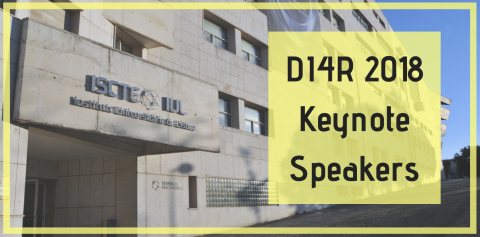Virtual Research Environments for implementing Long-tail Open Science
Date:
Friday, September 30, 2016 - 11:30
Overview:
“Open science” is strongly characterising the science practices evolution toward a culture of openness and cooperation. It promises to introduce systemic changes to the way science and research has to be carried out.
To make this approach a norm requires a rethinking not only of the scientific culture but also of the technology supporting the scientific work. This is particularly true for the “long tail of science” where the actors cannot rely on pre-organised and costly supporting environments managed by dedicated organizations. Increasingly often in this landscape communities of practice dynamically develop to address specific research questions/problems. Very often such communities are multidisciplinary, involve members belonging to diverse organisations, and require to access data and services that are spread among many heterogeneous providers. These type of communities of practices are currently expected to build and operate their own supporting environments able also to effectively and transparently inject open science in daily tasks. In the majority of cases cost and time required to implement this approach largely exceed the community available funding. There is thus a large demand for comprehensive solutions provided with the as-a-service model.
This presentation describes a service enabling to easily create and operate Virtual Research Environments (VREs) as-a-Service.
Virtual Research Environments are innovative, web-based, community-oriented, comprehensive, flexible, and secure working environments conceived to serve these needs. In this presentation it is described how a service capable to efficiently implement and operate VREs can be realised. This approach results from a concrete experience gained when developing VREs for many diverse domains and communities including environmental science, fisheries, biodiversity, cultural heritage, social mining. The approach is based on an open ecosystem of e-Infrastructure having d4science.org as pivot. Via the pivotal infrastructure it is described how to efficiently provide scientists with innovative and enhanced services organized in dedicated VREs each tailored to satisfy the needs of a designated community. Such advanced services include (i) a rich array of services guaranteeing seamless data discovery and access both per-data typology and across data typologies and data sources, (ii) a data analytics platform benefitting from a distributed and multi-tenant computing infrastructure and oriented to provide scientists with both a comprehensive set of ready to use algorithms and methods as well as mechanism to inject and execute their own methods, (iii) collaboration oriented facilities enabling scientists to “publish research objects” resulting from their activity, comment on them, actually re-purpose and re-use such valuable artefacts. They are conceived to transparently leverage existing services and resources offered by the federated infrastructures and service providers. D4Science.org currently hosts more than 50 VREs, supports more than 2500 scientists in 44 countries; integrates more than 50 data providers, executes more than 25,000 models & processes per month, provide access to over a billion quality records, 20,000 temporal datasets, 50,000 spatial datasets. The presentation concludes with a set of best practices / recommendations / benefits resulting from the described experience and the proposed approach.
Target Audience:
Because of the key role VREs might have in supporting scientists and open science, the experience presented and the resulting best practices are of interest for all the stakeholders DI4R is oriented to including research communities and infrastructure providers.
Benefits for Audience:
Participants will be provided with a comprehensive and informed perspective on how it is possible to efficiently and effectively provide designated communities with innovative working environments transparently supporting open science practices.
Topic 2: Services enabling research
| Presenters | Organisation | URL |
| Donatella Castelli, Pasquale Pagano, Leonardo Candela | CNR-ISTI | www.d4science.org |
Download presentation:



